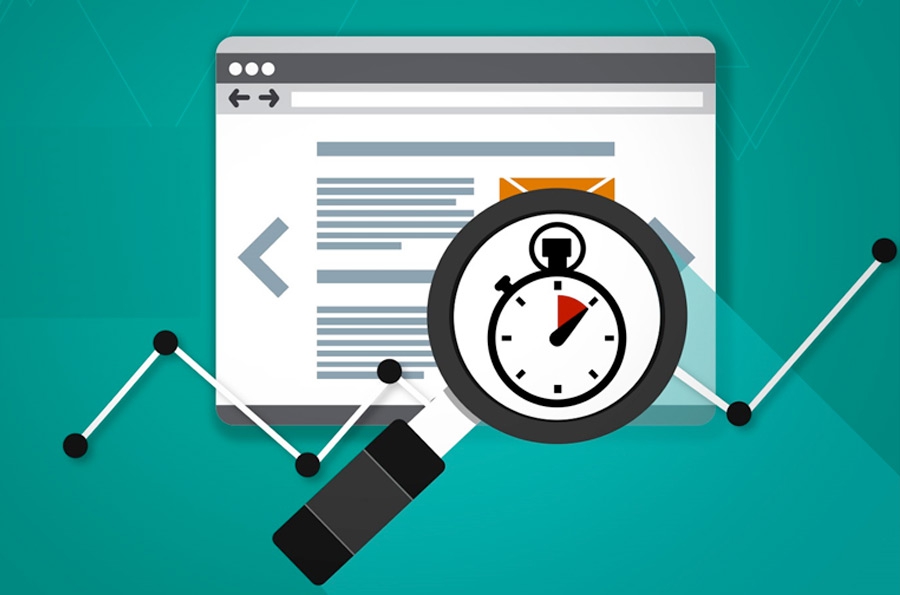14 Important Information About Website Speed

Website speed has long been seen as an important factor influencing search engine rankings. It is stated that it is one of the most important issues in search engine optimization (SEO).
Slow websites can cause a bad user experience, causing visitors not to come back to your website. This is also important from search engine ranking, because search engines do not buy products from you, but people do.
Is website speed an issue for your site? If so, what can you do about it?
Below are 14 important information about website speed and 4 things you can do if your website is slow.
14 IMPORTANT INFORMATION ABOUT WEBSITE SPEED
1- 80% of web page load time is images, style sheets, scripts, Flash etc. It's all about installing different parts like. (Yahoo!)
2- 79% of people who shop online say that if they have a problem with the performance of the website, they will not visit that website again. (KissMetrics)
3- 73% of mobile internet users say that they have encountered a website with a very slow loading speed at least once. (Fiver)
4- 51% of mobile internet users say that they have encountered a website that crashes and gives an error message at least once. (Raven)
5- 47% of consumers say that they expect their website to load in 2 seconds at most. (Innovation Insights)
6- 44% of consumers tell a friend if they have a bad experience while shopping online. (GlobalDots)
7- 40% of consumers exit websites that take more than 3 seconds to load. (KissMetrics)
8- 38% of mobile internet users say that they have encountered a website that is not usable at least once. (Shoprocket)
9- 22% increase rate of loading speed of websites per year. (Radware)
10- 18% of mobile users exit websites that load slower than 5 seconds. If the load time takes longer than 10 seconds, this rate increases to 30%. (KissMetrics)
11- Average page load time this year is 5 seconds. (Pingdom)
12- 1 second delay in page response time reduces customer acquisition rate by 7%. (eConsultancy)
13- If an e-commerce site is making $100,000 a day, 1 second of page lag causes that site to generate $2.5 million less in sales per year. (Amazon)
14- Users are now starting to leave sites with a response time of more than 2.5 seconds. (Forrester)
4 TIPS FOR WHEN YOUR WEBSITE IS SLOW
1- Hosting: Your choice of hosting package has a big impact on your page load times. If your website is new, we recommend that you start with Individual Hosting packages. However, if you are using free content portals such as WordPress, Joomla or OpenCart, you should check out the ready-made application packages.
2- Enable browser caching: When someone comes to your website for the first time, they have to load HTML document, style sheets, JavaScript files and images before they can use your page. That's about 30 components and 2.4 seconds. Some platforms, such as WordPress, have caching plugins. These plugins require some tweaking and testing, but they greatly speed up your website's detection and rendering times.
3- Optimize images: Large images take longer to load. For this reason, you need to make sure that your images are as small as possible. With image editing tools you can:
– You can crop your images to the desired size. For example, if your page is 570px wide, resize your image to that width.
– Keep the color depth as low as possible.
– Remove image comments.
4- Optimize CSS images: CSS contains the style requirements for your page. Typically, your website can access this information in one of two ways: with an external file that is loaded before your page is rendered, or inline within an HTML document. Use only one external CSS style sheet when editing your styles because the extra style sheets increase HTTP requests. Two resources you can use for this are:
– CSS Tools. These tools tell you how many external style sheets your website is using.
– Instructions for using external CSS files together.
If website speed is important to you, one of the good tools to examine your site speed is Google PageSpeed Insights. This resource is good for getting started and provides important website speed advice.
